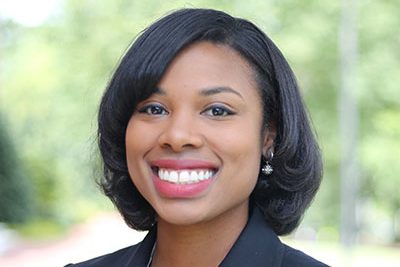May 6, 2022

UNC Eshelman School of Pharmacy faculty member Kimberly Sanders, Pharm.D., is the inaugural recipient of UNC’s Dr. Julie Byerley Award for Faculty Excellence in Interprofessional Education and Practice.
The newly established award honors faculty who merit recognition for significantly contributing to the advancement of interprofessional education and practice by developing intentional opportunities for students to “learn from, with, and about each other to advance health.”
During her time at Carolina, Dr. Byerley had a tremendous impact on health professions education, establishing the interprofessional education and practice committee that would ultimately become the foundational framework for the Office of Interprofessional Education and Practice. Through her leadership, Dr. Byerley empowered numerous health professions educators to be innovative, collaborative, and set a standard for educational excellence at the University of North Carolina at Chapel Hill.
“I feel truly honored and really appreciate the recognition in receiving the inaugural award. I greatly admire Dr. Julie Byerley as the award’s namesake and everything the award represents, so I will be accepting it very warmly,” Sanders said. “It embodies what I have strived to do in my faculty career so far and this award crowns all the great interprofessional collaborations I’ve been blessed to have in the last six years at UNC.”
Sanders, an assistant professor in the School’s Division of Practice Advancement and Clinical Education, also has a shared appointment as an assistant professor at the UNC Adams School of Dentistry. She is primarily involved in building and expanding on the partnership between the Schools of Pharmacy and Dentistry through initiatives to develop, implement, and evaluate clinical pharmacy services in dental practice clinics, as well as being active in the creation of longitudinal interprofessional education curricula.
About the future of her work, Sanders says, “I plan to continue to build off the collaborations as there is more work to be done in this area, especially with intentional experiences in interprofessional practice. I get to work with so many beyond talented faculty colleagues that makes creating these types of experiences a joy, even through the challenges of scheduling and placement. I will also continue to be a voice that supports its placement in our various health care curricula.”
Sanders said when she was a pharmacy student, she didn’t have many opportunities to learn in an interprofessional environment, so she aims to be an advocate for students and their exposure to diverse perspectives in health care.
As for advice to students about the importance of collaboration in advancing health care, Sanders says, “It is essential to what we do in providing the best health care we can to our patients, as well as providing work environments that support the well-being of all individuals involved. Regardless of where students go after graduation, they will be in settings that either have interprofessional collaboration to enhance or need interprofessional collaboration created. I think as health care educators, we all hope we’re preparing them to take the lead in developing those collaborations when the time comes.”
Sanders will be recognized during the Office of Interprofessional Education and Practice End of Year Celebration on May 4.
Latest News

Dean Angela Kashuba receives Carolina Alumni Faculty Service Award

RASP poster presentations capture student research


